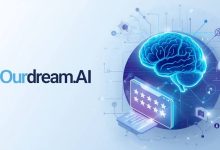addressing challenges in teaching and implementing solutions

Public education is currently standing at a critical juncture, requiring a departure from traditional approaches to meet the evolving needs of students and society. Mere adjustments to existing methods are insufficient, as they risk compounding the challenges faced by the education system. To address these persistent issues, innovative solutions must be sought after and implemented.
One notable hurdle in modern education is the integration of technology. While recognizing the significance of technology in education, the need for improvement remains. Access to hardware, software, and the Internet in classrooms must be enhanced, complemented by robust technical support. Equally crucial is empowering educators with professional development centered around effective instructional technology use. Collaborative efforts with teachers’ unions can advocate for funding and support, thus fostering a conducive environment for tech integration.
Furthermore, the cognitive aspects of teaching and learning cannot be overlooked. The framework of cognitive challenges underscores potential impediments to students’ progress. These challenges encompass students’ self-perception of lacking the required skills, metacognition, and self-regulation. Addressing these psychological barriers through personalized approaches can significantly enhance learning outcomes.
Curriculum and instruction present another set of challenges that demand attention. While acknowledging the difficulties, it’s essential to explore opportunities for improvement. Analyzing the impediments in the education system can pave the way for informed decisions by teachers, educators, and policymakers. By identifying the barriers and potential solutions, the curriculum can be refined to better meet the needs of students and society.
Overcoming these obstacles requires structured approaches. The Concerns-Based Adoption Model (CBAM) developed by Hall and Hord offers a framework for managing the implementation of transformative changes in education. This model emerged in response to educational reform initiatives, emphasizing the significance of addressing concerns and apprehensions during the implementation process. Educators play a central role in the successful execution of these changes, making it imperative to address their needs and concerns.
Limited resources, including funding and time, also pose challenges in education. Teachers are often faced with the dilemma of choosing which innovative technologies to adopt due to constraints. A key concern lies in the communication between teachers and parents, which affects students’ overall support system. Ensuring adequate support beyond the classroom is essential for students’ holistic growth and development.
To enhance education, strategies must be implemented to improve algebra knowledge and overall comprehension. A focus on a deeper understanding of algebraic concepts, along with practical solutions to implementation challenges, can transform the way mathematics is taught and learned.







